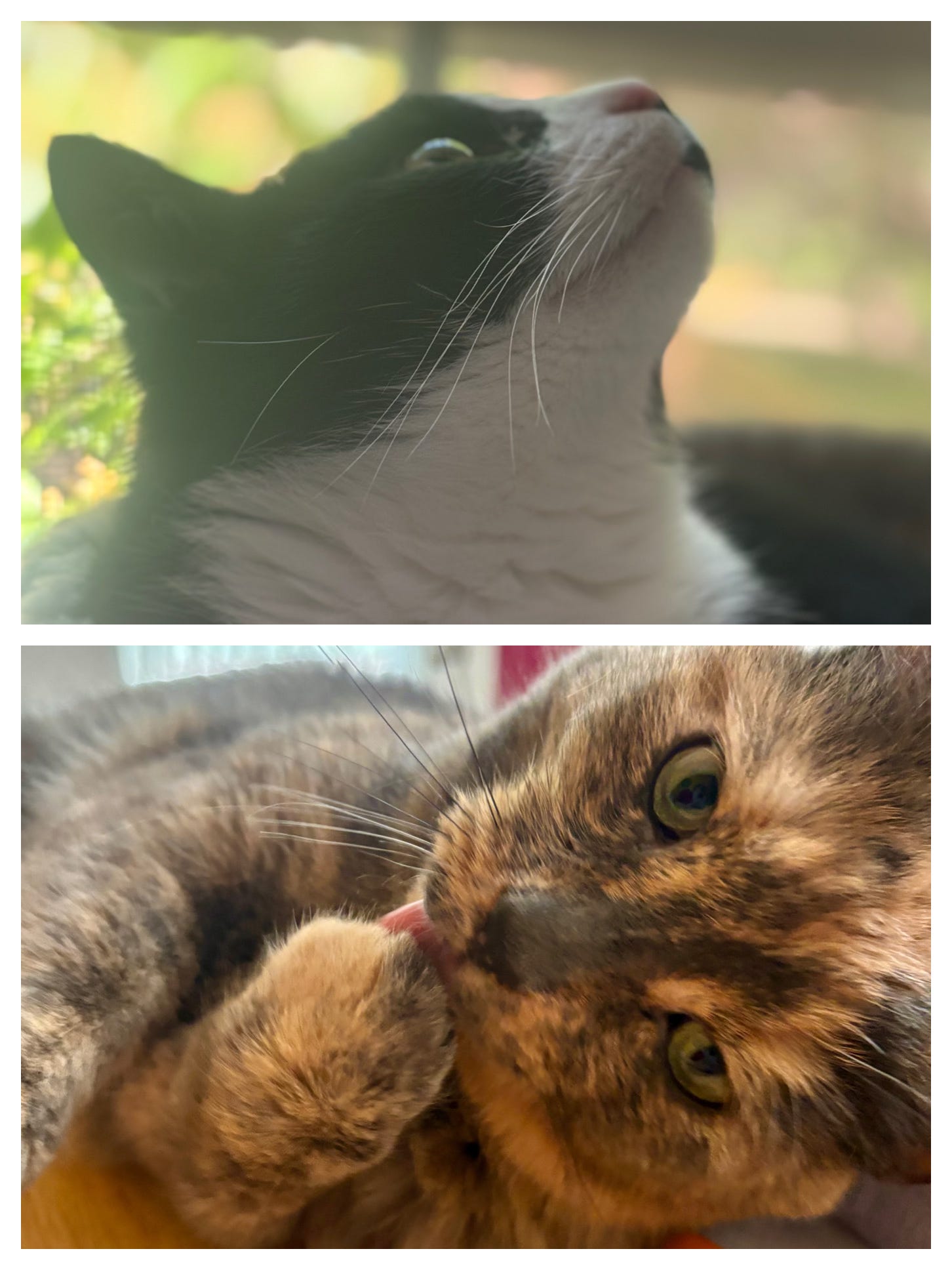On Friday evening, Céline Dion made an astonishing return to public performance, concluding the opening ceremony of the Paris Olympics with an especially powerful rendition of a song that makes everybody cry even under normal circumstances. Right away, I started seeing posts on social media from people who don’t speak French, saying they could feel the meaning of the song in Dion’s performance but wanted to look up the lyrics to appreciate all the details. And that is great! It is also, as we’re about to see, a recipe for even more tears—of grief, yes, but also of frustration.
“Hymne à l’amour” was first made famous by the incomparable Édith Piaf, who wrote the lyrics (with music by Marguerite Monnot, a prolific composer and a fascinating figure in her own right). Piaf dedicated the song—an epic declaration of love, in which the singer vows that if her lover dies, so will she—to Marcel Cerdan, whom biographers describe as the love of her life. About a month after Piaf first performed “Hymne à l’amour,” Cerdan died. In a plane crash. On his way to see her. That is the level of tragedy we are dealing with here.
The song has been performed in English by numerous singers using either of two translations: one by Piaf’s frequent collaborator Eddie Constantine (which Piaf herself recorded under the title “Hymn to Love”) and another, titled “If You Love Me (Really Love Me)” (notably performed by Kay Starr and Brenda Lee), by the British lyricist Geoffrey Parsons.
Is one of these translations better than the other? And what does “better” mean in a situation like this, anyway?
First, a reminder that translating formal poetry is hard. Add to that the demands of a melody—especially in a language like English, in which syllable stress is of vital importance—and creating a singable translation presents an absurd level of difficulty from the jump. It’s not something I’m eager to pursue, and you’re about to see why.
One might be tempted to assume that Constantine’s translation is closer to the literal meaning of Piaf’s lyrics—after all, Piaf herself collaborated with him and recorded his version!—but it is, in fact, quite a free adaptation. In particular, Constantine chops the bridge in half (a change retained in Parsons’s later version), and he changes its meaning altogether. In that part of the song, Piaf sings in French of her willingness to do literally anything—renounce her allegiance to her country, steal the moon, even (gasp!) dye her hair—if her lover asked her to. In English, though, her “heart begins to sing” when she thinks of his smile and his strong arms. Meh.
If the bridge were the only issue with Constantine’s version of the lyrics, it could be easily forgiven. Perhaps Piaf and/or Constantine thought the melodrama of the French version’s bridge was unlikely to go over well with English-speaking audiences (and I’m sure they weren’t wrong). The opening image (“If the sky should fall into the sea / And the stars fade all around me”) captures the scale of the French lyrics, and the promise to “sing a hymn to love” is a lovely touch, folding the original title into the song itself.
But right at the end, the whole thing falls apart for me. The final, triumphant line in French—the part where you think Céline is done singing, but she’s not—is “Dieu réunit ceux qui s’aiment” (God reunites those who love each other). (Keep in mind that, by the logic of the song, both the singer and her lover are presumably dead at this point; it’s their souls that are being reunited.) That is a heck of a line. It’s the hopeful note the listener has probably been craving for the last three and a half minutes; it ends on a form of the verb to love, which is, you know, the whole point of the song; it is an undeniably grand verbal gesture, as histrionic as all that preceded it. I have no idea how to handle this in English, and certainly not in eight or nine syllables that line up with the stress of the melody. The line has been bouncing around in my brain for three days now, and I’m at a loss.
So I’m acknowledging that the line is difficult. I’m still going to get judgmental about Constantine’s translation, though, because he went with: “Here unite, all those who love people!” I’m sorry, but: What?! This whole thing has been a love song addressed from one person to another, and now all of a sudden we’re switching it up and making it about love of all humankind? Where is “here”? Must we unite? If we don’t show up “here,” are we presumed to be misanthropes? What if we’re introverts and we are willing to unite, but separately, in our own homes? (This paragraph has gone horribly astray, but in my defense, so did the song!)
Turning to Parsons’s translation, there are elements I admire, particularly his respect for the rhyme scheme and his setting of the line “If you love me, really love me,” which makes full use of the melody’s grandeur. In those respects, his version inspires more or less the same feeling in the listener as Piaf’s original French lyrics did.
But personally, I can’t get behind the use of the phrase “I don’t care” at the end of the verses and at the end of the song. Does it correspond to something in the French text? Absolutely! But the placement is very different. When Piaf sings “peu m’importe” in the middle of certain verses, she is referring back to earlier lines (the sky falling, the earth crumbling, the lover dying) and saying none of those things will matter much to her . . . “si tu m’aimes” (if you love me). “I don’t care” is perhaps a bit strong as a translation for “peu m’importe,” and giving pride of place to a rather flippant phrase—making it the final gesture of the song—undermines the deep feeling being expressed. Besides, that vowel sound in “care” is an awkward diphthong; it doesn’t lend itself naturally to being held as a long note over a soaring orchestra.
By the way, his solution to the tricky translation of the coda? He cut it. The song ends early. Honestly, that was probably for the best.
Sometimes a song’s adaptation into another language can give it a new life, or at least a new flavor. “Beyond the Sea”wouldn’t exist without “La mer,” but it expands well beyond the literal meaning of the French lyrics and becomes its own thing. In the case of “Hymne à l’amour,” however, I only see the lyrics being diminished in translation—at least for now. Perhaps someone has a transcendent singable translation in their pocket. That person is not me.
A Humble Suggestion
In each newsletter, I’ll offer at least one recommendation for your reading, watching, or listening pleasure.
The 2023 film Wicked Little Letters is now on Netflix in the US, and it’s delightful. In 1920, an English seaside town is scandalized when a prudish resident (played by Olivia Colman) receives a barrage of anonymous notes using offensive language. Her foulmouthed neighbor (Jessie Buckley) is the obvious suspect, but the town’s first-ever policewoman (Anjana Vasan) believes her misogynistic superiors are overlooking evidence. More comedy than mystery, the film is mostly lighthearted and features some of the silliest profanity I’ve ever heard.
Speaking of letters, my second recommendation this week is to write one. Or help a child write one. Or send someone a postcard just to say hello. Basically, put some imperfect but sincere personal correspondence out into the world to counteract the dystopian vision of a certain tech behemoth that is currently spending roughly thirty bajillion dollars on advertising during the Olympics in an effort to normalize the notion that having generative AI write a fan letter on your kid’s behalf is good parenting. These people seem to think the world is clamoring for the opportunity to outsource a child’s enthusiasm and self-expression to a machine. Wild.
Here, Look at My Cats
The world is a mess, and you might welcome a pleasant distraction. For what it’s worth, here are my cats.

Enjoy what’s left of the Olympics! Go everybody!
Laura





So interesting... thank you for sharing! (Love the cats, too!)
Translating songs is no mean feat, I couldn't do that either. Thanks for a very enjoyable read, Laura, say hello to your adorable cats!